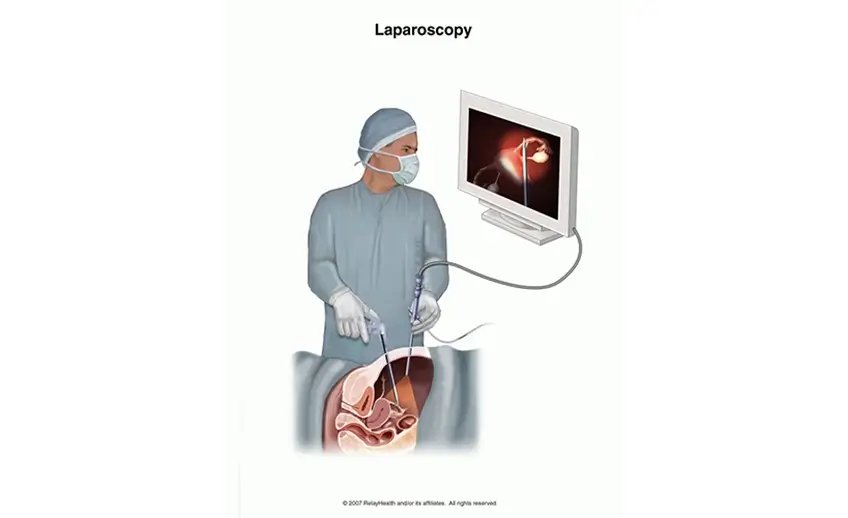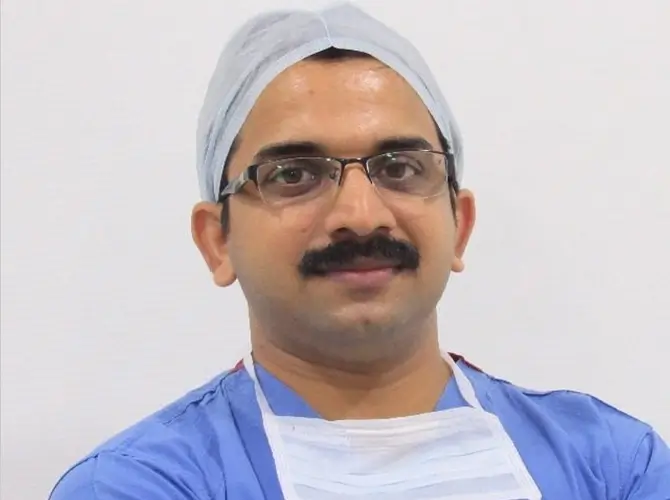Who is a candidate for laparoscopy?
If Dr. Joy Abraham feels you have an underlying medical condition, he may advise laparoscopy and assist in creating a personalised treatment plan.
- Gallstones, gallbladder polyps, and gallbladder issues.
- A tumour or mass in the abdomen.
- Intra-abdominal adhesion-related abdominal pain (scar tissue formed after a prior surgery causing intermittent blockage on the intestines).
- Cancer
Preparation for laparoscopic Surgery
As a Laparoscopy expert Dr. Joy Abraham does a preoperative examination before suggesting laparoscopy. He requests an electrocardiogram (EKG), blood tests, and urinalysis to make sure you are fit enough to have surgery.
It should be noted that you let your Laparoscopy Specialist in Ahmedabad know about any prescription drugs or dietary supplements you take before your appointment. Your Laparoscopy expert might ask you to adjust your dosage in the days before your surgery because some medications, such as blood thinners, can impair the outcome of the treatment.
What happens during a laparoscopy?
Laparoscopies are carried out by Dr. Joy Abraham at Excel Hospital . He uses a syringe to inject you with general anesthetic before the procedure begins, putting you to sleep.
We make a little incision right below your belly button after you're at ease. We then meticulously thread a tiny tube known as a cannula through it. We use a cannula to inject carbon dioxide to let her examine your organs more clearly.
We then use the incision to insert the laparoscope. The interior organs of your body are visible on a live video stream from the laparoscope. If necessary, the doctor can collect a biopsy or perform repairs by inserting tiny instruments through the laparoscope.
Following the surgery, the doctor removes the laparoscope, closes your incision, and then transports you to the recovery area.
As Laparoscopy expert in Ahmedabad Dr Joy Abraham has provided a variety of surgical procedures to help alleviate the discomfort of many people. He is among the Best Laparoscopic Surgeon in Ahmedabad and has helped countless people in Ahmedabad live a healthier life.
Frequently Asked Questions
1. What is laparoscopic surgery?
Laparoscopic surgery, also known as minimally invasive surgery or keyhole surgery, is a modern surgical technique that uses small incisions and specialized instruments to access and treat various conditions inside the body. It is performed using a laparoscope, a thin, flexible tube with a camera and light attached, which allows the surgeon to view the internal organs and perform the procedure with precision.
2. How is laparoscopic surgery different from traditional open surgery?
In traditional open surgery, a large incision is made to directly access the affected area, which may require longer recovery time and result in more scarring. In laparoscopic surgery, several small incisions are made, reducing trauma to surrounding tissues and leading to faster recovery, less pain, and minimal scarring.
3. What are the benefits of laparoscopic surgery?
The benefits of laparoscopic surgery include shorter hospital stays, reduced post-operative pain, faster recovery times, minimal scarring, and a lower risk of infection compared to traditional open surgery. Additionally, patients often experience improved cosmetic outcomes and a quicker return to their daily activities.
4. Is laparoscopic surgery safe?
Yes, laparoscopic surgery is considered safe and is widely performed by skilled surgeons. However, like any surgical procedure, there are potential risks and complications, which will be thoroughly discussed with the patient before the surgery to ensure they are fully informed.
5. How long does it take to recover from laparoscopic surgery?
The recovery time varies depending on the specific procedure and the patient's overall health. In general, patients can expect a quicker recovery compared to open surgery, with most individuals returning to their normal activities within a few days to a few weeks.


